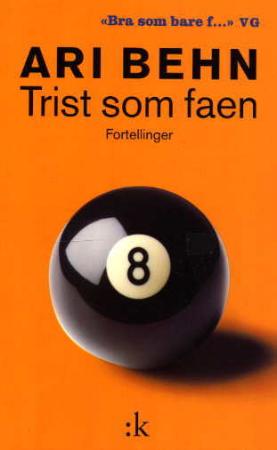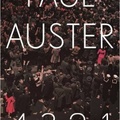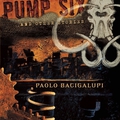Ari Behn: Trist som faen

Ari Behn’s short story collection contains very short, minimalistic stories – some of them are actually shorter than an average post on this blog, and perhaps this is the reason why I feel that I cannot write a long review about them. For instance, I wouldn’t be able to engage in a lengthy analysis of contemporary Norwegian society, of the crisis of the nuclear family, or of the newly emerging gender roles which – according to the blurb of the Hungarian edition – are the major themes of these stories. I don’t mean that the blurb is misleading, Behn’s stories are indeed about these topics, but they are so short and seemingly simple that for once I feel it’s much easier to read the book than to imagine what it might be like, based on my post. Of course I still write something about them – contrary to Ari Behn I’m unable to create minimalistic writings of any kind.
Behn’s short stories concentrate on small but important life events. In one story, a young husband who spends a lot of time away from his wife comes home to find that someone dug a pool in his garden and it turns out that it was his father who did it, without asking for his permission. In another one the protagonist is staying in Las Vegas and he’d like to find his luck there – but all he wins is a night with two whores and their pimps, sleeping away on the couch of the hotel room. There’s one in which the career of a young and promising sportswoman’s comes to an end in three seconds. And there’s another one where the protagonist, a football fan/football hooligan (it depends on your point of view) finally has to decide whether it’s football or his wife which is more important to him. And so on.
These stories are very condensed and thick, and of course they leave a lot of things unsaid. But their minimalism doesn’t leave me wishing for more information, their thickness is not suffocating, and the things they don’t say can be imagined. For instance, I don’t have to know the name of the protagonist in the story about the pool in the backyard, I don’t have to know how long he’s been married or exactly what kind of tensions exist between him and his father – without all this information, I can still imagine very well why he’s upset because his father dug a pool in his garden, or why he resents the fact that his wife is happy about the new pool.
By the way, Behn’s short stories are often very beautiful and expressive. The last couple of lines in the story about the football fan (which describe a photo of his wife that he threw in to the field during the match) are astonishing. And the „typically” masculine day-dreaming of the protagonist of another story about a woman he meets by accident and who is immediately willing to engage in wild sexual intercourse with him is also fascinating. And it’s enough for Ari Behn to write a single sentence to show me the violet-colored American sky and the brightness of Las Vegas where huge limousines cruise up and down the streets day and night.
To keep it simple: this is a good book. (As far as I know, Ari Behn hasn’t written anything as good as this ever since.)
Behn’s short stories concentrate on small but important life events. In one story, a young husband who spends a lot of time away from his wife comes home to find that someone dug a pool in his garden and it turns out that it was his father who did it, without asking for his permission. In another one the protagonist is staying in Las Vegas and he’d like to find his luck there – but all he wins is a night with two whores and their pimps, sleeping away on the couch of the hotel room. There’s one in which the career of a young and promising sportswoman’s comes to an end in three seconds. And there’s another one where the protagonist, a football fan/football hooligan (it depends on your point of view) finally has to decide whether it’s football or his wife which is more important to him. And so on.
These stories are very condensed and thick, and of course they leave a lot of things unsaid. But their minimalism doesn’t leave me wishing for more information, their thickness is not suffocating, and the things they don’t say can be imagined. For instance, I don’t have to know the name of the protagonist in the story about the pool in the backyard, I don’t have to know how long he’s been married or exactly what kind of tensions exist between him and his father – without all this information, I can still imagine very well why he’s upset because his father dug a pool in his garden, or why he resents the fact that his wife is happy about the new pool.
By the way, Behn’s short stories are often very beautiful and expressive. The last couple of lines in the story about the football fan (which describe a photo of his wife that he threw in to the field during the match) are astonishing. And the „typically” masculine day-dreaming of the protagonist of another story about a woman he meets by accident and who is immediately willing to engage in wild sexual intercourse with him is also fascinating. And it’s enough for Ari Behn to write a single sentence to show me the violet-colored American sky and the brightness of Las Vegas where huge limousines cruise up and down the streets day and night.
To keep it simple: this is a good book. (As far as I know, Ari Behn hasn’t written anything as good as this ever since.)





